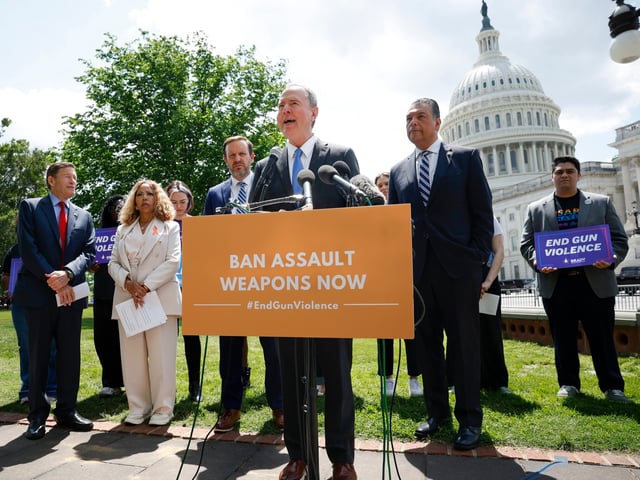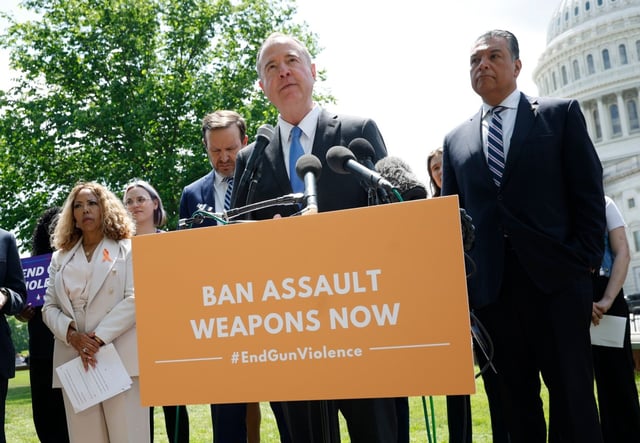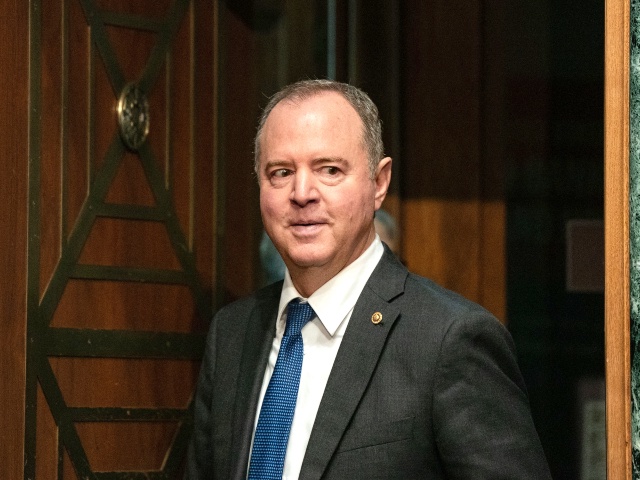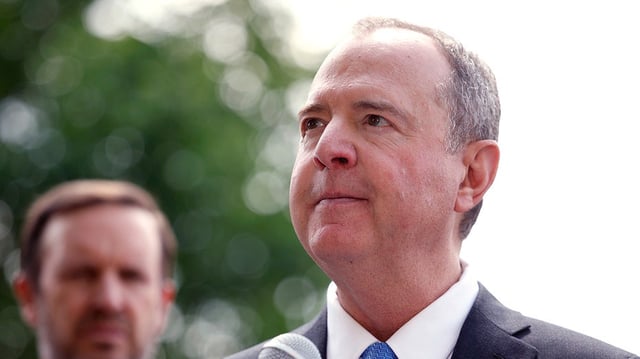Overview
- The Assault Weapons Ban of 2025 would prohibit the sale, manufacture, import, and transfer of semiautomatic assault weapons and large-capacity magazines, while grandfathering existing lawful owners.
- The bill, introduced by Sens. Adam Schiff and Alex Padilla, is co-sponsored by 37 Senate Democrats, Sen. Bernie Sanders, and over 100 House members led by Rep. Lucy McBath.
- Proponents cite data showing a 37% decline in mass shootings and a 70% reduction in fatalities during the 1994–2004 federal ban, though studies on its overall impact remain inconclusive.
- Schiff and Padilla emphasized the bill as a continuation of the late Sen. Dianne Feinstein’s legacy, who championed the original 1994 legislation.
- Despite strong advocacy by gun-control groups, including Brady and GIFFORDS, the bill is unlikely to pass due to Republican control of both Congress and the White House.



